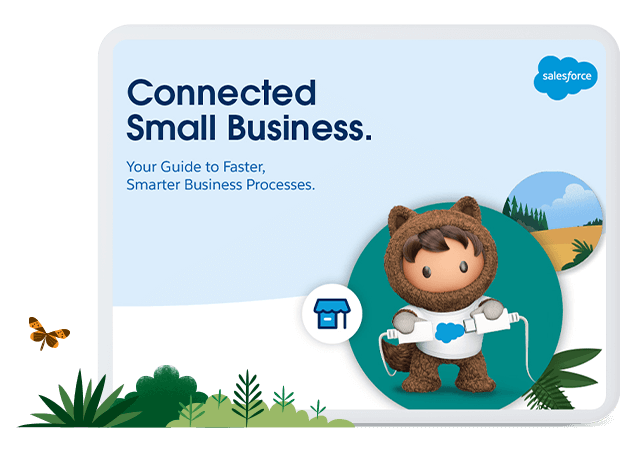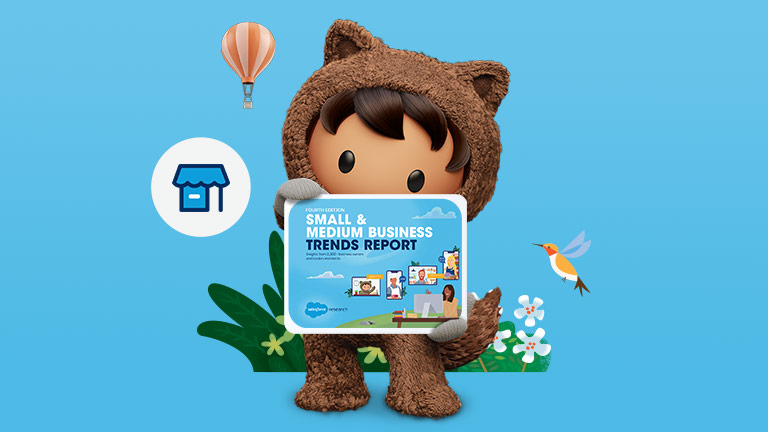The age of the customer, the era of the digital disrupter, and the days of the data goldrush are upon us. The small business landscape has changed remarkably over the past few years, and today’s digital-first consumer expects seamless, personalised interactions.
It’s no surprise, then, that the use of CRM for small business is on the rise. The Small and Medium Business Trends report reveals that 56% of SMEs now have a CRM system. The adoption is even more pronounced amongst growing SMEs, with nearly 70% (67%) of these businesses now using CRM, as opposed to only 48% of stagnant/declining SMEs.
These growing SMEs are setting new baselines for customer expectations, and stagnant/declining SMEs without a CRM will find it difficult to keep up. More and more, the future of small business looks like it will be defined by the digital imperative and relationship building, so for SMEs without a CRM, the time to act is now.
But how exactly can CRM help SMEs, and what should SMEs think about when choosing a CRM and creating a future-proof workplace?
The benefits of CRM for small business
CRM for small business enables SMEs to get closer to their customer, but that’s just the start of the benefits of CRM.
CRM tools can also help SMES:
Leverage AI to reduce low-value tasks and free the workforce
Establish a SSOT (Single Source of Truth) to eliminate siloed and rogue data
Enable better collaboration with real-time information
Turbocharge teams with better tools for remote working
Centralise sales leads, support tickets and customer records in a single place
Nurture and manage leads throughout the sales process
Drive productivity in sales and service teams
Connect, integrate and streamline processes to increase CX and EX (Customer Experience and Employee Experience)
Create a more data-centric culture, empowering employees to deliver on the transformative potential of digitisation
Increase revenue by identifying golden opportunities for upselling and cross-selling
Six questions to ask when choosing a CRM for small business
So, the benefits of CRM are clear. But what should a small business look for when choosing a CRM? Here are some simple questions to help you find the perfect CRM for your SME.
Should you stay on-premises or should you get in the cloud? Cloud-based CRM systems have increasingly become the norm due to their flexibility, affordability and user-friendly nature. Cloud-based CRM solutions don’t require robust IT support or large upfront investments, and are often updated automatically. However, some SMEs with complex legacy systems or specialised software may have to use an on-premises CRM.
What do you need your CRM system to do? The first step in choosing a CRM is to be clear about your business objectives, and then seek out a system that will best help your business meet these goals. For instance, is simple contact management your biggest concern, or do you need a CRM with robust analytical capabilities? Do you need something to track sales pipeline, benchmark your marketing activities, or both?
Who will need access? One of the benefits of CRM is the visibility it provides across teams and functions, enabling smoother collaboration. Consider who will be using the CRM the most, and look for something that will best support these players. Sales teams, for example, may want a single system that can handle territory management, performance management, coaching and workflows.
What training will the workforce need? Do you have the key roles covered? CRM can provide SMEs with powerful new tools, so it’s important that the workforce is able to properly leverage them. Asses the strengths and abilities of your workforce, match them against the requirements of the CRMs on your shortlist, and see where the two intersect. Even better, use an on-demand training platform to skill up the workforce and fill any digital skills gaps your SME may have.
Do you want a technology provider or a strategic partner? When choosing your CRM, consider whether you will need assistance with implementation, and whether you want to have access to ongoing support. Look for a CRM provider that has a winning track record of helping SMEs grow. Ideally, you’ll not only be adding a piece of technology when you choose your CRM, you’ll be gaining a strategic partner that can understand your business’s unique pain points and help choose the right solutions.
How flexible do you need your CRM to be, i.e., do you need a CRM system that can grow with your company? Will you be integrating it with a number of other solutions? When choosing a CRM for small business, make sure to choose one that can help future-proof your company. If you have big plans for growth, look for a CRM that can scale up with you. Solving current business challenges is great; finding a forward-looking CRM solution that can flex with your needs is even better.
Unlocking the power of CRM for small business
The benefits of CRM are clear, but SMEs may need a hand in unlocking the full potential of their powerful new tools. After all, when choosing a CRM, you’re also choosing an ally.
Make sure that the technology provider you choose understands your unique business objectives and can help put together the right solution. Ensure that they can provide the support you need, offer regular updates, and that the products they suggest are not only a good fit for your SME today, but will still be right tomorrow.
To see more about how to unlock the benefits of CRM, download ‘Your Complete CRM Handbook’. Here is a free demo showing how Salesforce can help your small business evolve to face the future.







